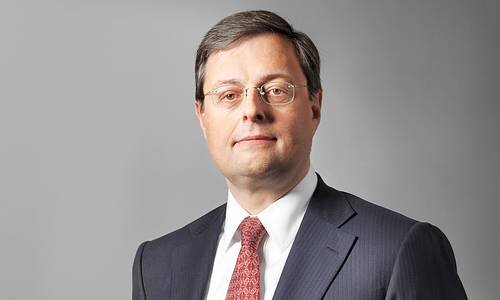The Bermuda trial the bank just lost may seem very far away. But the ruling points directly to the Swiss head office.
Narinder Hargun, the Bermuda Supreme Court judge in the case, found the situation to be a very clear one. The bank's unit based on the island, Credit Suisse Life (Bermuda), clearly knew about the former Credit Suisse banker's Patrice Lescaudron activities.
But his judgment, a 280-page document made available to finews.com, indicates they chose to ignore everything instead.
«CS Life did not take action or adequate action to prevent Mr. Lescaudron's fraudulent mismanagement of the policy accounts because it was prioritizing the revenues Mr. Lescaudron generated for Credit Suisse over the interest of its clients,» Hargun said.
The decision came yesterday after five years of legal conflict, ostensibly penalizing the unit with a $550 million U.S. dollar fine. That is much more than CS has provisioned for and the payment is now likely to impact its first-quarter 2022 performance.
Pointing at the Group
Even though the CS unit has appealed the decision and made its position clear on the ruling, they have to obey the judgment as it stands until the next ruling on the case.
The Bermuda unit is also not solely at fault, according to the court. It reaches across CS, encompassing both Lescaudron's superiors in Geneva and a number of involved functions at the group level, including legal headed by Romeo Cerutti (image below).
According to the court, nobody instituted any kind of measure to stop Lescaudron's fraudulent activities.

(Image: Credit Suisse)
Massive Fraud
Credit Suisse has always maintained that it was also deceived just as much as anyone else. In 2018, Lescaudron was convicted by a Swiss court for forging the signature of former clients over an 8-year period and Credit Suisse was recognized as a victim of the illegal activity. The former banker admitted to falsifying trades and hiding losses as part of a multi-million dollar scheme and was sentenced to prison before he committed suicide in 2020.
But now, the Bermuda judgment hands the Eastern European oligarchs, who formed into a so-called «CS Victims» group for the case, a clear opening to use the judgement as a way to storm the gates of the main fortress – CS at group level.
Losses on Swiss Accounts
That includes the former Georgia Prime Minister Bidzina Ivanishvili who previously indicated that he was likely to take legal action in Singapore in connection with the affair. The CS trust arm in the city-state is trying to use a similar defense that the Bermuda unit has in order to avoid being responsible for the damages.
Ivanishvili has also indicated that he has lost money on accounts in Switzerland. From that point of view, it would make sense for him to ask for damages under Swiss law. But such charges would be handled under the domestic legal regime and could not take advantage of the Bermuda ruling. The chances of any Swiss ruling for or against him is not yet clear.
Supervisors in Focus
The Bermuda judgment also takes to task an individual who was one of Lescaudron's supervisors and who now holds an important executive function in Credit Suisse's Wealth Management business. The court was not in a position to call him as a witness even though he was likely in the best position to know what was going on then, the court indicated. The banker in question was extensively probed for a report compiled by Swiss legal firm Geissbuehler Weber & Partner in 2017 that was commissioned by the Swiss Financial Market Supervisory Authority (FINMA).
The report was leaked to the media last year and it formed the basis for much of the court proceedings in Bermuda.
Warning Signs
Even though the report found that no one outside Lescaudron engaged in criminal activity, they continued to let him service clients like Ivanishvili even though there were clear warning signs. The now promoted executive had been warned in writing by the bank in 2015.
There were apparently many red flags. The Swiss legal report indicates hundreds of incidents between 2009 and 2015 that were not subsequently fully investigated. In the fall of 2018, CS itself was warned by FINMA for not having enough supervisory controls on the banker.
That is also one of the things the Lescaudron affair has in common with last year's Archegos debacle – an internal investigation that reveals a very nonchalant approach towards internal warnings. Another report on the Greensill affair, which is also taking place last year, is being kept under a tight lid. But shareholders, including the Swiss Ethos Trust, is demanding that questions be answered on the case at the annual general meeting.
Culture - Too Little Too Late
The cultural overhaul being initiated by chairman Axel Lehmann and CEO Thomas Gottstein is too late when it comes to the Lescaudron case. They are likely to be fighting it legally for years with the victims. In total, Ivanishvili and the others are asking for about $800 million dollars in damages.
Now they are starting proceedings in Switzerland against the bank. In November of last year, they filed new criminal charges in Geneva on top of a legal process that had already been started by the city's district attorney.
A number of CS bankers were interrogated as a result. Among them was a certain highly ranked member of the Wealth Management business – the one who was missing in the Bermuda case.



































